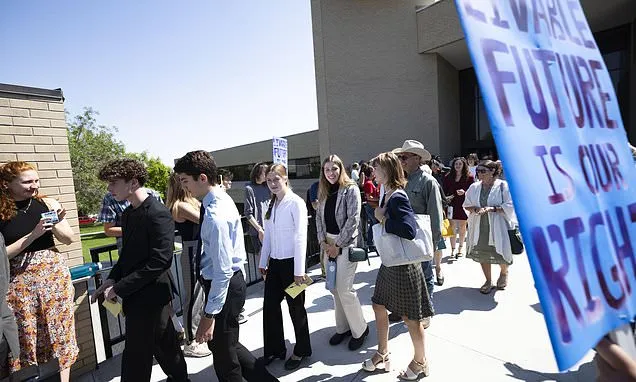HELENA, Mont. (AP) - Montana´s Supreme Court on Wednesday upheld a landmark climate ruling that said the state was violating residents´ constitutional right to a clean environment by permitting oil, gas and coal projects without regard for global warming.
The justices, in a 6-1 ruling, upheld an August 2023 decision by a state judge that was considered a breakthrough in attempts by young environmentalists and their attorneys to use the courts to leverage action on climate change. The state had appealed the ruling by District Court Judge Kathy Seeley and the arguments were heard in July.
The justices found a policy that prevented Montana from considering the effect of greenhouse gases when issuing permits for fossil fuel development is unconstitutional.
"With the ruling now in place, the Montana Supreme Court´s decision compels the state to carefully assess the greenhouse gas emissions and climate impacts of all future fossil fuel permits," said Melissa Hornbein, an attorney with the Western Environmental Law Center and attorney for the plaintiffs.
The justices rejected the state's argument that greenhouse gases released from Montana fossil fuel projects are minuscule on a global scale and reducing them would have no effect on climate change, likening it to saying: "If everyone else jumped off a bridge, would you do it too?"
"Plaintiffs may enforce their constitutional right to a clean and healthful environment against the State, which owes them that affirmative duty, without requiring everyone else to stop jumping off bridges or adding fuel to the fire," Chief Justice Mike McGrath wrote for the majority. "Otherwise the right to a clean and healthful environment is meaningless."
Republican Gov. Greg Gianforte said the state was still reviewing the decision, but said it will lead to "perpetual lawsuits that will waste taxpayer dollars and drive up energy bills for hardworking Montanans."
"This Court continues to step outside of its lane to tread on the right of the Legislature, the elected representatives of the people, to make policy," he said in a statement. "This decision does nothing more than declare open season on Montana´s all-of-the-above approach to energy, which is key to providing affordable and reliable energy to homes, schools, and businesses across our state."
Gianforte on Tuesday had held a meeting with energy suppliers, large energy consumers, public utility companies, transmission stakeholders and legislators to discuss how Montana could increase energy production to meet growing demand.
"With rising demand on our power grid, we must do more to unleash American energy production in the United States," he said Tuesday.
In seeking to overturn the ruling, the state had argued the plaintiffs - who range in age from 6 to 23 - should be required to challenge individual permits as they´re issued - which would involve trying to challenge even smaller amounts of emissions.
The 16 young plaintiffs described during the 2023 trial how climate change is profoundly affecting their lives: that worsening wildfires foul the air they breathe, while decreased snowpack and drought deplete rivers that sustain farming, fish, wildlife and recreation and affect Native traditions.
"This ruling is a victory not just for us, but for every young person whose future is threatened by climate change," lead plaintiff Rikki Held said in a statement.
